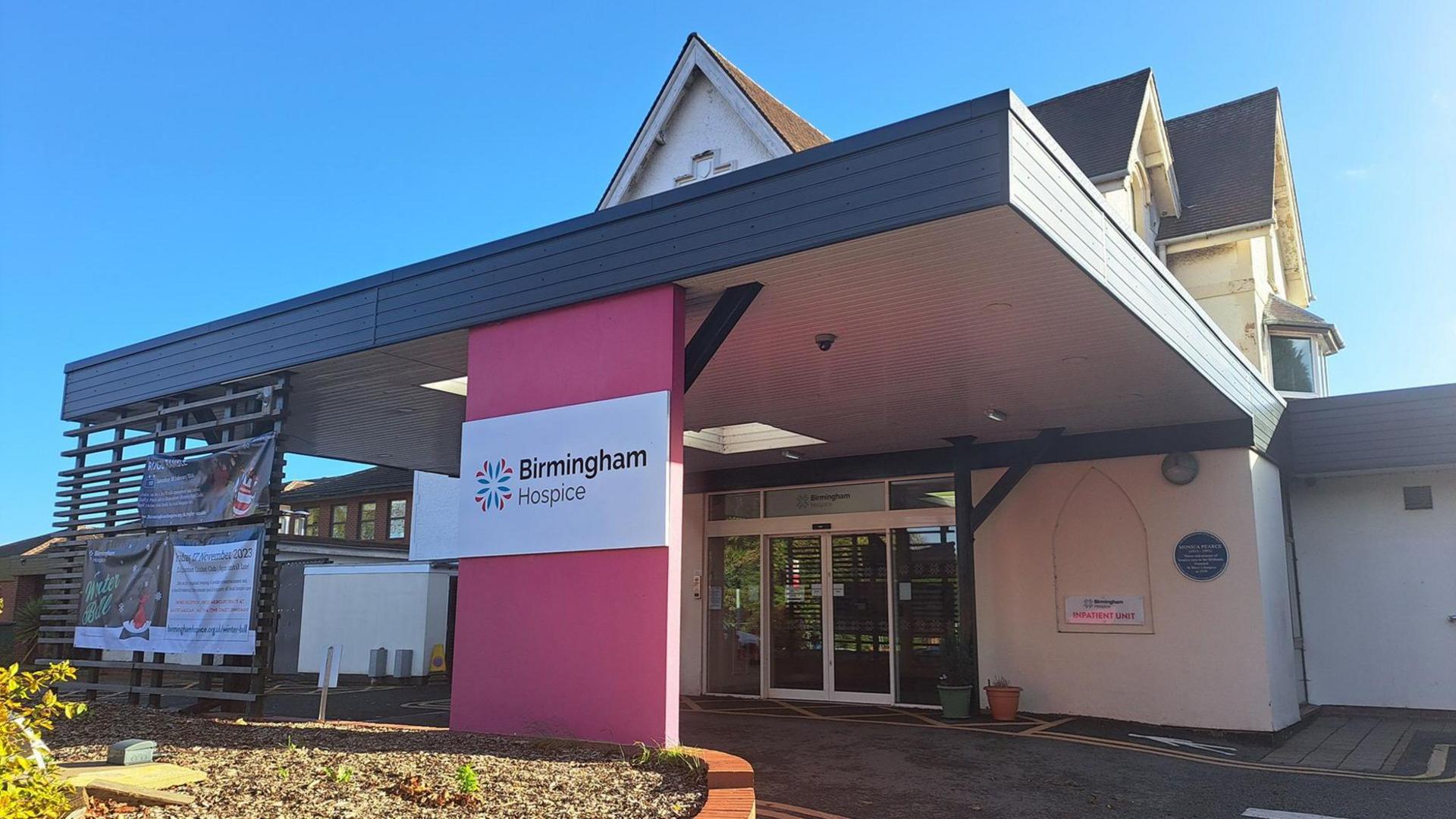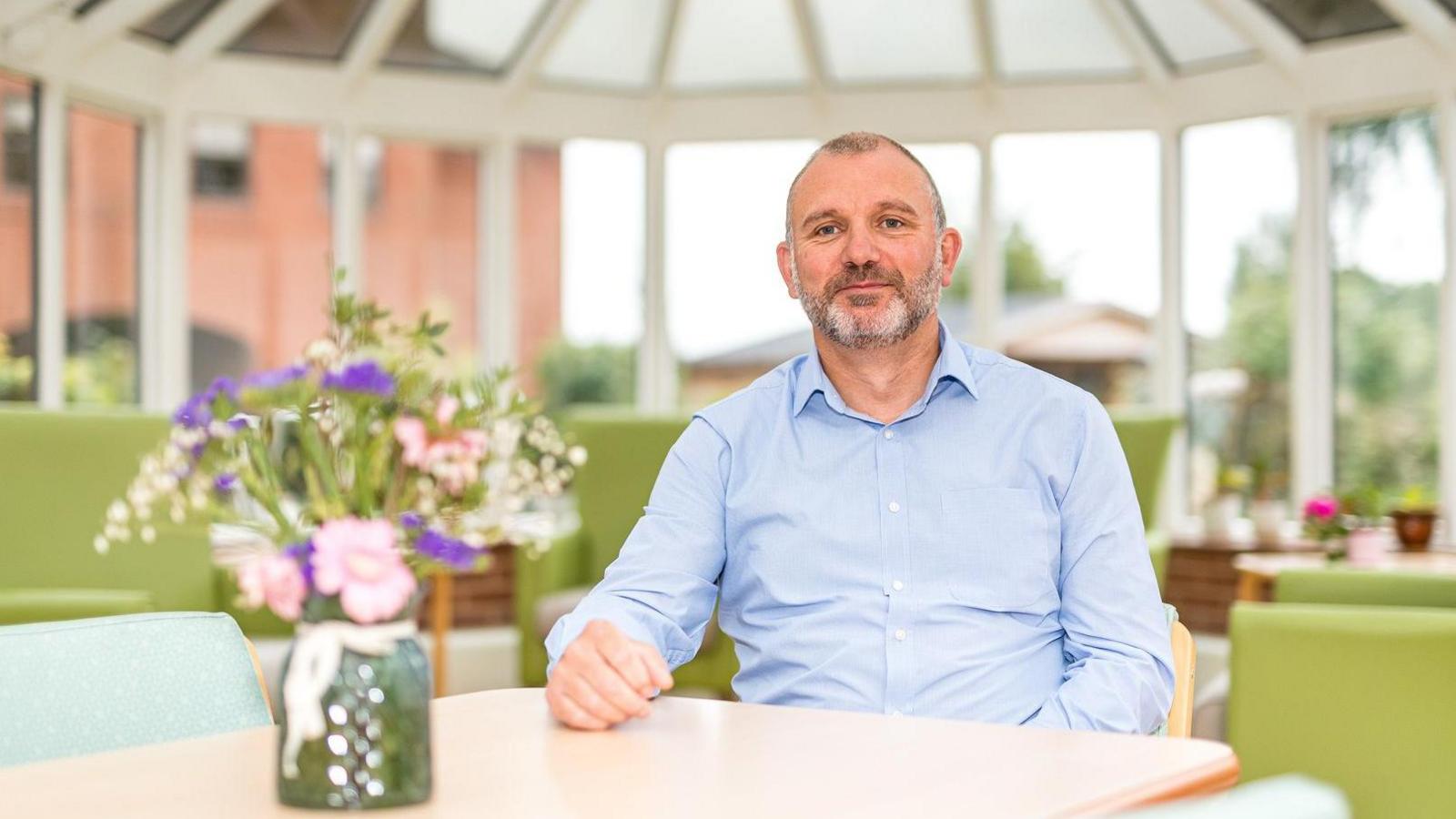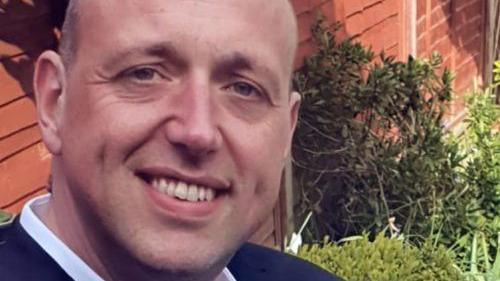Hospice announces redundancies amid 'funding crisis'

Birmingham Hospice said it could no longer survive if it continued to run at a deficit
- Published
A hospice is cutting staff and inpatient beds as rising costs have contributed to an estimated £2.4m budget shortfall.
Birmingham Hospice said it was being forced to cut the equivalent of 45 full-time posts - about 14% of its overall workforce.
National charity Hospice UK has warned that hospices across the UK face a £77m funding deficit and the coming years would be "devastating" for the sector without a new funding model.
Simon Fuller, CEO of Birmingham Hospice, said the cuts would affect patients, staff and the wider care system.
"The prospect of having to make highly skilled specialist end-of-life clinicians and support staff redundant is totally unpalatable," he said.
Birmingham Hospice has been operating 24 inpatient beds - 12 in Erdington and 12 in Selly Park.
Bed numbers will now be reduced to 16 in total, with eight at each hospice site.
All of the services it provides are free of charge to everyone who uses them.
A spokesperson for the hospice said: "In common with hospices across the country, the last few years have seen big increases in its costs, including the price paid for energy, food and drugs - and the funding it receives from the NHS has not risen at the same rate."
Mr Fuller said there was a growing need for palliative and end-of-life care and the NHS was unable to meet the huge demands on its beds.

"Most people do not want to die in hospital and hospices provide outstanding services that support people to die in a place of their choosing," Simon Fuller said
The hospice will need to raise £6.5m this year to cover the costs of running the charity, which amounts to more than £55,000 per day.
Forty-two per cent of all costs need to be covered through fundraising activity, income from shops and voluntary donations, according to the charity.
Lucy Watkins, income generation director at Birmingham Hospice, said: "Our current situation is no reflection on the generous support we receive, and is entirely down to a lack of government funding for the hospice sector.
"While this shortfall cannot be covered by fundraising alone, we are hugely grateful for everyone’s support."
The Department for Health and Social Care has previously said it had made over £350m available to hospices since 2020.
A spokesperson said the government had also provided £60m in additional funding, including to some hospices, to deliver one-off payments to more than 27,000 eligible staff employed by non-NHS organisations.
However, parliamentary report in January 2024, external found that the current funding model for hospices was "not fit for purpose".
Waiting lists 'likely to increase'
Dawn Ward, chair of the hospice's board of trustees, added: "If hospices are forced to reduce the number of people they can help, that will mean longer stays and delayed discharges from the acute [NHS] sector, causing longer waits for treatment elsewhere."
She said the hospice remained "fully committed to providing outstanding end-of-life care" through its various services, but a reduction in capacity would mean waiting lists were "likely to increase".
The hospice said it had called talks with NHS commissioners to negotiate additional funding, but the Integrated Care Board (ICB) also had a funding shortfall and was making savings.
NHS England and Birmingham and Solihull ICB have been contacted for comment.
Follow BBC Birmingham on Facebook, external, X, external and Instagram. Send your story ideas to: newsonline.westmidlands@bbc.co.uk, external
Related topics
- Published18 April 2024

- Published15 April 2024
